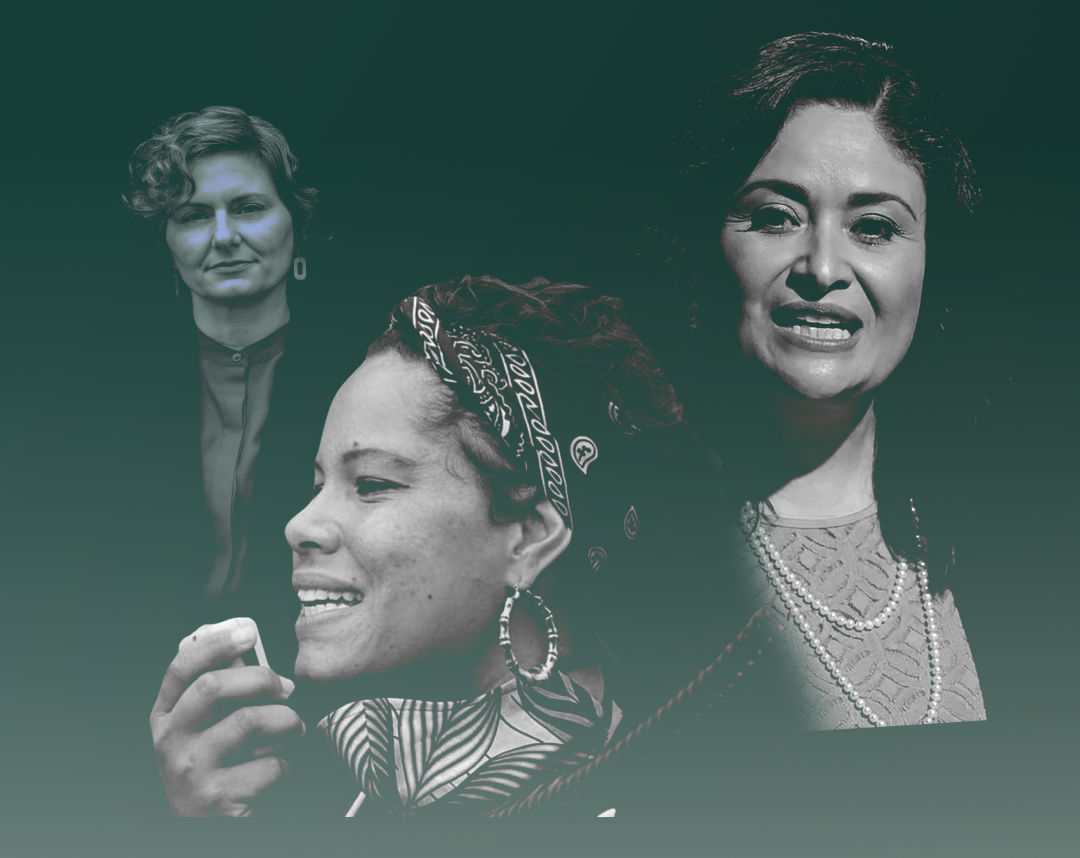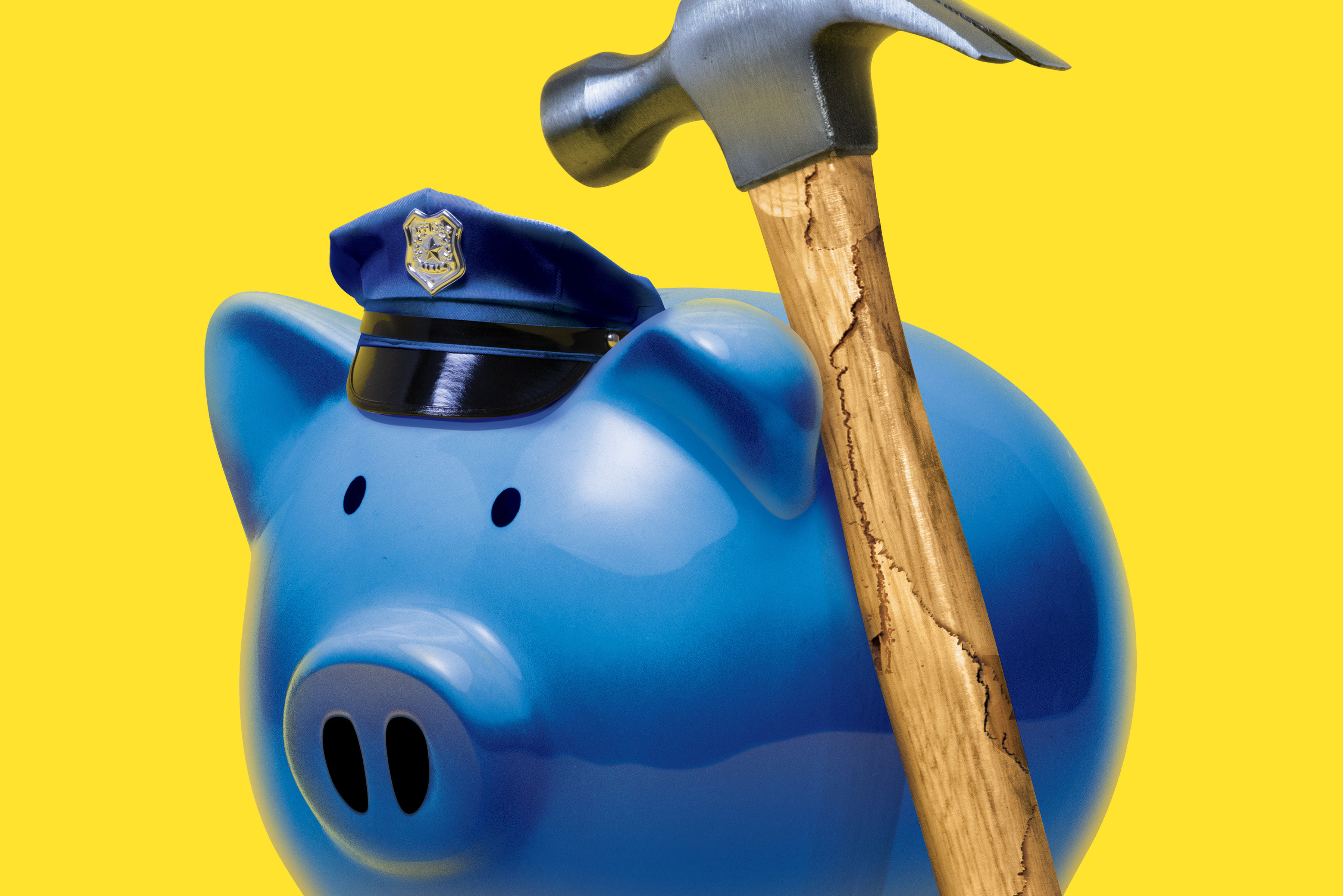Seattle May Be Progressive, But Its Voters Weren't This Election

Candidates Nicole Thomas-Kennedy, Nikkita Oliver, and M. Lorena González all took Ls.
Image: courtesy the candidates and Seattle Met Composite
Seattle likes to think of itself as a progressive town, but the 2021 election was a chance to prove it. With the city's top job and three other prominent races on the ballot just a year after a social reckoning, voters could signal their lefty virtues with ballot bubbles instead of yard signs and hashtags.
But to reckon with something does not necessarily mean to change it. Defunding the police, a rallying cry throughout the summer of 2020, apparently didn't resonate with enough of the electorate. On that cause and others, a return to a less turbulent Jet City is what most voters indicated they really wanted this election season.
While some of the races were ultimately much closer than early results suggested, three of the four candidates regarded as progressives in citywide contests—M. Lorena González, Nikkita Oliver, and Nicole Thomas-Kennedy—lost to opponents with more centrist stances. (The fourth, Teresa Mosqueda, easily held onto her city council seat over Kenneth Wilson.) For Seferiana Day, a partner at political consulting firm Upper Left Strategies, the main takeaway was obvious: "Moderates really turned out in full force."
Should we should stop using the p-word to describe our city's political bent, then? Not yet, according to Day. "I think Seattle is a very progressive city, for sure. But I think we're also a very wealthy city." The intersection of class and values, she adds, was at the forefront of this election.
Consider the proposal of eliminating single-family zoning to create more housing density. Mayor-elect Bruce Harrell's rejection of the idea may have contributed to his 17-point trouncing of González because well-heeled voters could perceive a ban's effect on their lives, says Day. "In the mayoral race, you're really talking about these day-to-day things, and people have pretty strong opinions when it comes to urbanism, or density, and what that means for them, or homelessness and sweeps, and how we deal with people on the street."
At the same time, some Harrell voters may have felt more compelled to lean further left in a contest for more abstract influence, like the race for city attorney. Thomas-Kennedy lost by less than four points to Ann Davison, a candidate with Republican ties, despite touting an abolitionist agenda that clashed with Harrell's views on public safety.
Campaign acumen, of course, also factored in. González's October surprise backfired, and Day, who worked on Brianna Thomas's bid for city council against Nelson and Oliver in the primary, doesn't believe progressives spent enough on "direct voter contact"—think TV ads and mailers. Sandeep Kaushik, a political consultant and former Stranger staffer who backed Harrell, Nelson, and Davison, wrote for Post Alley that the "radical left" candidates were simply in a bubble, divorced from the city's wants and needs. "They committed the cardinal sin of political campaigning," Kaushik said. "They privileged their ideology and their tribal solidarity over reality, and they fell in love with their own bullshit spin."
Everyone has a theory. But there are a couple of facts that can ground conversations about what went wrong for progressives as the city awaits a vote on the recall of city council member Kshama Sawant this December. In 2020, when the country rushed to ballot boxes to weigh in on the 2020 presidential election, 88.2 percent of registered Seattle voters, or nearly 440,000 people, cast their votes. In 2021, just 266,532 people, or 54.4 percent of registered city voters, did the same.
As former mayor Mike McGinn foretold last winter, the election's odd-year, local status limited turnout. As a result, "what you tend to see is that folks that already have resources—live in single-family homes, have waterfront views—are a larger percentage of the electorate, and they don't want to see change. And that’s who they vote for," McGinn said back then.
Would those unaccounted-for voters have swung the election to progressives? A Seattle Times analysis shows that a late leftward surge came from younger Seattleites, but it's impossible to say for certain.
It would be nice to know one of these years.




